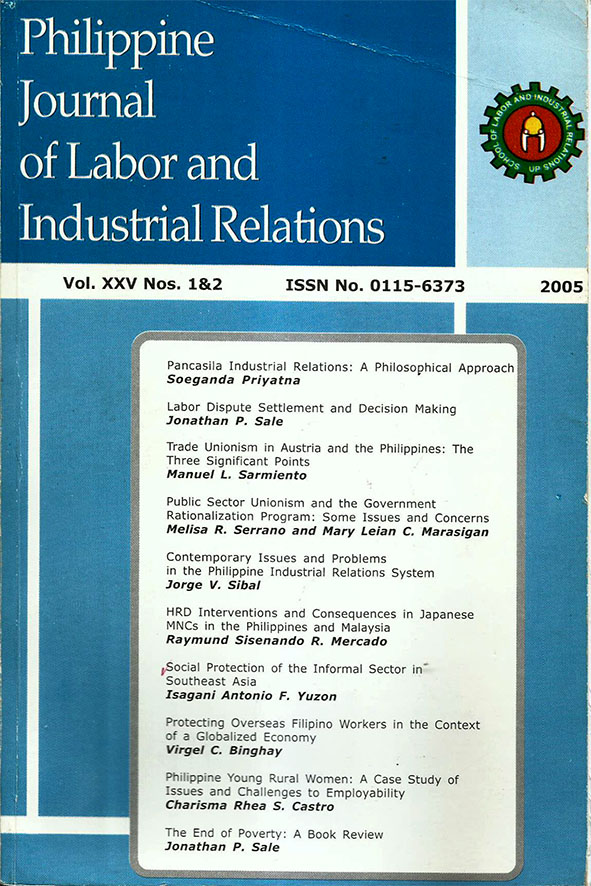Protecting Overseas Filipino Workers in the Context of a Globalized Economy
Abstract
The Philippines is well-known in the area of overseas labor migration as among the largest exporters of labor with 7.4 million stock estimates of Overseas Filipino Workers (OFW) at the end of December 2001. Faced with difficulties due to the chronic employment and underemployment problems in the country and the prospect of an ever-dimming future that lies abroad, hoping to obtain improvements in their economic and social conditions.
These exported workers are labeled as the "modern-day heroes of the land" because of the billions they remit each year that help save the Philippine economy from collapse. However, historical evidences have long indicated the need to examine the phenomenon of labor migration beyond the conventional focus on employment promotion and worker's remittances. The country reduces its unemployment and underemployment rates and improves its balance of payment but do these considerations really outweigh the consequences that the OFWs and the entire nation have to bear? For one, it is well documented that these migrants are exploited and their human rights violated by unscrupulous recruiters, traffickers and employers while nations stand by.
It is true that overseas labor migration is a worldwide phenomenon and that exploitation is not an exclusive experience to OFWs. Migrant workers from other labor sending countries also suffer the brunt of serving others abroad. But this is no palliative. This is alarming especially because exploitative and demeaning treatment continue despite international conventions to protect the rights of migrant workers have long been in place such as the 1990 UN (United Nations) Convention on the Protection of the Rights of all Migrant Workers and Members of their Families and the ILO (International Labor Organization) Declaring on Fundamental Principles and Rights at Work. These global understanding rely mainly on the capacity and sincerity of governments to implement programs envisioned by these international conventions. Many host countries have shown little regard for the rights of migrant workers in the past and seem unenthusiastic about changing this stance in the future not least because a lot of labor-surplus economies are ready to provide cheap labor. Threatened by the glut of own cheaper labor from rival labor-exporting countries, sending countries like the Philippines are hesitant to bargain seriously for the protection of the rights of their workers.
The situation calls for a multilateral solution. Without the strong cooperation and joint action of sending and receiving countries, respect for core labor standards will remain an elusive goal. Such multilateral solution could be made possible only if there is an international body vested with the authority to direct the compliance of governments to international labor standards. Given the situation, it is time to consider forming and/or strengthening an international body that can monitor, investigate and take action on the violations of basic labor standards.


